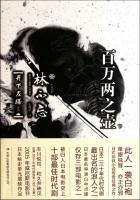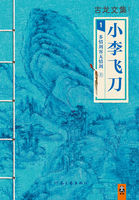I saw no more of Uriah Heep, until the day when Agnes left town. I was at the coach office to take leave of her and see her go; and there was he, returning to Canterbury by the same conveyance. It was some small satisfaction to me to observe his spare, short-waisted, high-shouldered, mulberry-coloured great-coat perched up, in company with an umbrella like a small tent, on the edge of the back seat on the roof, while Agnes was, of course, inside; but what I underwent in my efforts to be friendly with him, while Agnes looked on, perhaps deserved that little recompense. At the coach window, as at the dinner-party, he hovered about us without a moment's intermission, like a great vulture: gorging himself on every syllable that I said to Agnes, or Agnes said to me.
In the state of trouble into which his disclosure by my fire had thrown me, I had thought very much of the words Agnes had used in reference to the partnership.'I did what I hope was right. Feeling sure that it was necessary for papa's peace that the sacrifice should be made, I entreated him to make it.'A miserable foreboding that she would yield to, and sustain herself by, the same feeling in reference to any sacrifice for his sake, had oppressed me ever since. I knew how she loved him. I knew what the devotion of her nature was. I knew from her own lips that she regarded herself as the innocent cause of his errors, and as owing him a great debt she ardently desired to pay. I had no consolation in seeing how different she was from this detestable Rufus with the mulberry-coloured great-coat, for I felt that in the very difference between them, in the self-denial of her pure soul and the sordid baseness of his, the greatest danger lay. All this, doubtless, he knew thoroughly, and had, in his cunning, considered well.
Yet I was so certain that the prospect of such a sacrifice afar off, must destroy the happiness of Agnes; and I was so sure, from her manner, of its being unseen by her then, and having cast no shadow on her yet; that I could as soon have injured her, as given her any warning of what impended. Thus it was that we parted without explanation: she waving her hand and smiling farewell from the coach window; her evil genius writhing on the roof, as if he had her in his clutches and triumphed.
I could not get over this farewell glimpse of them for a long time. When Agnes wrote to tell me of her safe arrival, I was as miserable as when I saw her going away. Whenever I fell into a thoughtful state, this subject was sure to present itself, and all my uneasiness was sure to be redoubled. Hardly a night passed without my dreaming of it. It became a part of my life, and as inseparable from my life as my own head.
I had ample leisure to refine upon my uneasiness: for Steerforth was at Oxford, as he wrote to me, and when I was not at the Commons, I was very much alone. I believe I had at this time some lurking distrust of Steerforth. I wrote to him most affectionately in reply to his, but I think I was glad, upon the whole, that he could not come to London just then. I suspect the truth to be, that the influence of Agnes was upon me, undisturbed by the sight of him; and that it was the more powerful with me, because she had so large a share in my thoughts and interest.
In the meantime, days and weeks slipped away. I was articled to Spenlow and Jorkins. I had ninety pounds a year (exclusive of my house-rent and sundry collateral matters) from my aunt. My rooms were engaged for twelve months certain: and though I still found them dreary of an evening, and the evenings long, I could settle down into a state of equable low spirits, and resign myself to coffee; which I seem, on looking back, to have taken by the gallon at about this period of my existence. At about this time, too, I made three discoveries: first, that Mrs. Crupp was a martyr to a curious disorder called'the spazzums', which was generally accompanied with inflammation of the nose, and required to be constantly treated with peppermint; secondly, that something peculiar in the temperature of my pantry, made the brandy-bottles burst; thirdly, that I was alone in the world, and much given to record that circumstance in fragments of English versification.
On the day when I was articled, no festivity took place, beyond my having sandwiches and sherry into the office for the clerks, and going alone to the theatre at night. I went to see The Stranger, as a Doctors' Commons sort of play, and was so dreadfully cut up, that I hardly knew myself in my own glass when I got home. Mr. Spenlow remarked, on this occasion, when we concluded our business, that he should have been happy to have seen me at his house at Norwood to celebrate our becoming connected, but for his domestic arrangements being in some disorder, on account of the expected return of his daughter from finishing her education at Paris. But, he intimated that when she came home he should hope to have the pleasure of entertaining me. I knew that he was a widower with one daughter, and expressed my acknowledgements.
Mr. Spenlow was as good as his word. In a week or two, he referred to this engagement, and said, that if I would do him the favour to come down next Saturday, and stay till Monday, he would be extremely happy. Of course I said I would do him the favour; and he was to drive me down in his phaeton, and to bring me back.
When the day arrived, my very carpet-bag was an object of veneration to the stipendiary clerks, to whom the house at Norwood was a sacred mystery. One of them informed me that he had heard that Mr. Spenlow ate entirely off plate and china; and another hinted at champagne being constantly on draught, after the usual custom of table-beer. The old clerk with the wig, whose name was Mr. Tiffey, had been down on business several times in the course of his career, and had on each occasion penetrated to the breakfast-parlour. He described it as an apartment of the most sumptuous nature, and said that he had drunk brown East India sherry there, of a quality so precious as to make a man wink. We had an adjourned cause in the Consistory that day—about excommunicating a baker who had been objecting in a vestry to a paving-rate—and as the evidence was just twice the length of Robinson Crusoe, according to a calculation I made, it was rather late in the day before we finished. However, we got him excommunicated for six weeks, and sentenced in no end of costs; and then the baker's proctor, and the judge, and the advocates on both sides (who were all nearly related), went out of town together, and Mr. Spenlow and I drove away in the phaeton.
The phaeton was a very handsome affair; the horses arched their necks and lifted up their legs as if they knew they belonged to Doctors' Commons. There was a good deal of competition in the Commons on all points of display, and it turned out some very choice equipages then; though I always have considered, and always shall consider, that in my time the great article of competition there was starch: which I think was worn among the proctors to as great an extent as it is in the nature of man to bear.
We were very pleasant, going down, and Mr. Spenlow gave me some hints in reference to my profession. He said it was the genteelest profession in the world, and must on no account be confounded with the profession of a solicitor: being quite another sort of thing, infinitely more exclusive, less mechanical, and more profitable. We took things much more easily in the Commons than they could be taken anywhere else, he observed, and that set us, as a privileged class, apart. He said it was impossible to conceal the disagreeable fact, that we were chiefly employed by solicitors; but he gave me to understand that they were an inferior race of men, universally looked down upon by all proctors of any pretensions.
I asked Mr. Spenlow what he considered the best sort of professional business? He replied, that a good case of a disputed will, where there was a neat little estate of thirty or forty thousand pounds, was, perhaps, the best of all. In such a case, he said, not only were there very pretty pickings, in the way of arguments at every stage of the proceedings, and mountains upon mountains of evidence on interrogatory and counter-interrogatory (to say nothing of an appeal lying, first to the Delegates, and then to the Lords), but, the costs being pretty sure to come out of the estate at last, both sides went at it in a lively and spirited manner, and expense was no consideration. Then, he launched into a general eulogium on the Commons. What was to be particularly admired (he said) in the Commons, was its compactness. It was the most conveniently organized place in the world. It was the complete idea of snugness. It lay in a nutshell. For example: You brought a divorce case, or a restitution case, into the Consistory. Very good. You tried it in the Consistory. You made a quiet little round game of it, among a family group, and you played it out at leisure. Suppose you were not satisfied with the Consistory, what did you do then? Why, you went into the Arches. What was the Arches? The same court, in the same room, with the same bar, and the same practitioners, but another judge, for there the Consistory judge could plead any court-day as an advocate. Well, you played your round game out again. Still you were not satisfied. Very good. What did you do then? Why, you went to the Delegates. Who were the Delegates? Why, the Ecclesiastical Delegates were the advocates without any business, who had looked on at the round game when it was playing in both courts, and had seen the cards shuffled, and cut, and played, and had talked to all the players about it, and now came fresh, as judges, to settle the matter to the satisfaction of everybody! Discontented people might talk of corruption in the Commons, closeness in the Commons, and the necessity of reforming the Commons, said Mr. Spenlow solemnly, in conclusion; but when the price of wheat per bushel had been highest, the Commons had been busiest; and a man might lay his hand upon his heart, and say this to the whole world,—'Touch the Commons, and down comes the country!'
I listened to all this with attention; and though, I must say, I had my doubts whether the country was quite as much obliged to the Commons as Mr. Spenlow made out, I respectfully deferred to his opinion. That about the price of wheat per bushel, I modestly felt was too much for my strength, and quite settled the question. I have never, to this hour, got the better of that bushel of wheat. It has reappeared to annihilate me, all through my life, in connexion with all kinds of subjects. I don't know now, exactly, what it has to do with me, or what right it has to crush me, on an infinite variety of occasions; but whenever I see my old friend the bushel brought in by the head and shoulders (as he always is, I observe), I give up a subject for lost.
This is a digression. I was not the man to touch the Commons, and bring down the country. I submissively expressed, by my silence, my acquiescence in all I had heard from my superior in years and knowledge; and we talked about The Stranger and the Drama, and the pairs of horses, until we came to Mr. Spenlow's gate.
There was a lovely garden to Mr. Spenlow's house; and though that was not the best time of the year for seeing a garden, it was so beautifully kept, that I was quite enchanted. There was a charming lawn, there were clusters of trees, and there were perspective walks that I could just distinguish in the dark, arched over with trellis-work, on which shrubs and flowers grew in the growing season.'Here Miss Spenlow walks by herself,'I thought.'Dear me!'
We went into the house, which was cheerfully lighted up, and into a hall where there were all sorts of hats, caps, great-coats, plaids, gloves, whips, and walking-sticks.'Where is Miss Dora?'said Mr. Spenlow to the servant.'Dora!'I thought.'What a beautiful name!'
We turned into a room near at hand (I think it was the identical breakfast-room, made memorable by the brown East Indian sherry), and I heard a voice say,'Mr. Copperfield, my daughter Dora, and my daughter Dora's confidential friend!'It was, no doubt, Mr. Spenlow's voice, but I didn't know it, and I didn't care whose it was. All was over in a moment. I had fulfilled my destiny. I was a captive and a slave. I loved Dora Spenlow to distraction!
She was more than human to me. She was a Fairy, a Sylph, I don't know what she was—anything that no one ever saw, and everything that everybody ever wanted. I was swallowed up in an abyss of love in an instant. There was no pausing on the brink; no looking down, or looking back; I was gone, headlong, before I had sense to say a word to her.
'I,'observed a well-remembered voice, when I had bowed and murmured something,'have seen Mr. Copperfield before.'
The speaker was not Dora. No; the confidential friend, Miss Murdstone!
I don't think I was much astonished. To the best of my judgement, no capacity of astonishment was left in me. There was nothing worth mentioning in the material world, but Dora Spenlow, to be astonished about. I said,'How do you do, Miss Murdstone? I hope you are well.'She answered,'Very well.'I said,'How is Mr. Murdstone?'She replied,'My brother is robust, I am obliged to you.'
Mr. Spenlow, who, I suppose, had been surprised to see us recognize each other, then put in his word.
'I am glad to find,'he said,'Copperfield, that you and Miss Murdstone are already acquainted.'
'Mr. Copperfield and myself,'said Miss Murdstone, with severe composure,'are connexions. We were once slightly acquainted. It was in his childish days. Circumstances have separated us since. I should not have known him.'
I replied that I should have known her, anywhere. Which was true enough.
'Miss Murdstone has had the goodness,'said Mr. Spenlow to me,'to accept the office—if I may so describe it—of my daughter Dora's confidential friend. My daughter Dora having, unhappily, no mother, Miss Murdstone is obliging enough to become her companion and protector.'
A passing thought occurred to me that Miss Murdstone, like the pocket instrument called a life-preserver, was not so much designed for purposes of protection as of assault. But as I had none but passing thoughts for any subject save Dora, I glanced at her, directly afterwards, and was thinking that I saw, in her prettily pettish manner, that she was not very much inclined to be particularly confidential to her companion and protector, when a bell rang, which Mr. Spenlow said was the first dinner-bell, and so carried me off to dress.
The idea of dressing one's self, or doing anything in the way of action, in that state of love, was a little too ridiculous. I could only sit down before my fire, biting the key of my carpet-bag, and think of the captivating, girlish, bright-eyed lovely Dora. What a form she had, what a face she had, what a graceful, variable, enchanting manner!
The bell rang again so soon that I made a mere scramble of my dressing, instead of the careful operation I could have wished under the circumstances, and went downstairs. There was some company. Dora was talking to an old gentleman with a grey head. Grey as he was—and a great-grandfather into the bargain, for he said so—I was madly jealous of him.
What a state of mind I was in! I was jealous of everybody. I couldn't bear the idea of anybody knowing Mr. Spenlow better than I did. It was torturing to me to hear them talk of occurrences in which I had had no share. When a most amiable person, with a highly polished bald head, asked me across the dinner table, if that were the first occasion of my seeing the grounds, I could have done anything to him that was savage and revengeful.
I don't remember who was there, except Dora. I have not the least idea what we had for dinner, besides Dora. My impression is, that I dined off Dora, entirely, and sent away half-a-dozen plates untouched. I sat next to her. I talked to her. She had the most delightful little voice, the gayest little laugh, the pleasantest and most fascinating little ways, that ever led a lost youth into hopeless slavery. She was rather diminutive altogether. So much the more precious, I thought.
When she went out of the room with Miss Murdstone (no other ladies were of the party), I fell into a reverie, only disturbed by the cruel apprehension that Miss Murdstone would disparage me to her. The amiable creature with the polished head told me a long story, which I think was about gardening. I think I heard him say,'my gardener', several times. I seemed to pay the deepest attention to him, but I was wandering in a garden of Eden all the while, with Dora.
My apprehensions of being disparaged to the object of my engrossing affection were revived when we went into the drawing-room, by the grim and distant aspect of Miss Murdstone. But I was relieved of them in an unexpected manner.
'David Copperfield,'said Miss Murdstone, beckoning me aside into a window.'A word.'
I confronted Miss Murdstone alone.
'David Copperfield,'said Miss Murdstone,'I need not enlarge upon family circumstances. They are not a tempting subject.'
'Far from it, ma'am,'I returned.
'Far from it,'assented Miss Murdstone.'I do not wish to revive the memory of past differences, or of past outrages. I have received outrages from a person—a female I am sorry to say, for the credit of my sex—who is not to be mentioned without scorn and disgust; and therefore I would rather not mention her.'
I felt very fiery on my aunt's account; but I said it would certainly be better, if Miss Murdstone pleased, not to mention her. I could not hear her disrespectfully mentioned, I added, without expressing my opinion in a decided tone.
Miss Murdstone shut her eyes, and disdainfully inclined her head; then, slowly opening her eyes, resumed:
'David Copperfield, I shall not attempt to disguise the fact, that I formed an unfavourable opinion of you in your childhood. It may have been a mistaken one, or you may have ceased to justify it. That is not in question between us now. I belong to a family remarkable, I believe, for some firmness; and I am not the creature of circumstance or change. I may have my opinion of you. You may have your opinion of me.'
I inclined my head, in my turn.
'But it is not necessary,'said Miss Murdstone,'that these opinions should come into collision here. Under existing circumstances, it is as well on all accounts that they should not. As the chances of life have brought us together again, and may bring us together on other occasions, I would say, let us meet here as distant acquaintances. Family circumstances are a sufficient reason for our only meeting on that footing, and it is quite unnecessary that either of us should make the other the subject of remark. Do you approve of this?'
'Miss Murdstone,'I returned,'I think you and Mr. Murdstone used me very cruelly, and treated my mother with great unkindness. I shall always think so, as long as I live. But I quite agree in what you propose.'
Miss Murdstone shut her eyes again, and bent her head. Then, just touching the back of my hand with the tips of her cold, stiff fingers, she walked away, arranging the little fetters on her wrists and round her neck; which seemed to be the same set, in exactly the same state, as when I had seen her last. These reminded me, in reference to Miss Murdstone's nature, of the fetters over a jail door; suggesting on the outside, to all beholders, what was to be expected within.
All I know of the rest of the evening is, that I heard the empress of my heart sing enchanted ballads in the French language, generally to the effect that, whatever was the matter, we ought always to dance, Ta ra la, Ta ra la! accompanying herself on a glorified instrument, resembling a guitar. That I was lost in blissful delirium. That I refused refreshment. That my soul recoiled from punch particularly. That when Miss Murdstone took her into custody and led her away, she smiled and gave me her delicious hand. That I caught a view of myself in a mirror, looking perfectly imbecile and idiotic. That I retired to bed in a most maudlin state of mind, and got up in a crisis of feeble infatuation.
It was a fine morning, and early, and I thought I would go and take a stroll down one of those wire-arched walks, and indulge my passion by dwelling on her image. On my way through the hall, I encountered her little dog, who was called Jip—short for Gipsy. I approached him tenderly, for I loved even him; but he showed his whole set of teeth, got under a chair expressly to snarl, and wouldn't hear of the least familiarity.
The garden was cool and solitary. I walked about, wondering what my feelings of happiness would be, if I could ever become engaged to this dear wonder. As to marriage, and fortune, and all that, I believe I was almost as innocently undesigning then, as when I loved little Em'ly. To be allowed to call her'Dora', to write to her, to dote upon and worship her, to have reason to think that when she was with other people she was yet mindful of me, seemed to me the summit of human ambition—I am sure it was the summit of mine. There is no doubt whatever that I was a lackadaisical young spooney; but there was a purity of heart in all this, that prevents my having quite a contemptuous recollection of it, let me laugh as I may.
I had not been walking long, when I turned a corner, and met her. I tingle again from head to foot as my recollection turns that corner, and my pen shakes in my hand.
'You—are—out early, Miss Spenlow,'said I.
'It's so stupid at home,'she replied,'and Miss Murdstone is so absurd! She talks such nonsense about its being necessary for the day to be aired, before I come out. Aired!'(She laughed, here, in the most melodious manner.)'On a Sunday morning, when I don't practise, I must do something. So I told papa last night I must come out. Besides, it's the brightest time of the whole day. Don't you think so?'
I hazarded a bold flight, and said (not without stammering) that it was very bright to me then, though it had been very dark to me a minute before.
'Do you mean a compliment?'said Dora,'or that the weather has really changed?'
I stammered worse than before, in replying that I meant no compliment, but the plain truth; though I was not aware of any change having taken place in the weather. It was in the state of my own feelings, I added bashfully: to clench the explanation.
I never saw such curls—how could I, for there never were such curls!—as those she shook out to hide her blushes. As to the straw hat and blue ribbons which was on the top of the curls, if I could only have hung it up in my room in Buckingham Street, what a priceless possession it would have been!
'You have just come home from Paris,'said I.
'Yes,'said she.'Have you ever been there?'
'No.'
'Oh! I hope you'll go soon! You would like it so much!'
Traces of deep-seated anguish appeared in my countenance. That she should hope I would go, that she should think it possible I could go, was insupportable. I depreciated Paris; I depreciated France. I said I wouldn't leave England, under existing circumstances, for any earthly consideration. Nothing should induce me. In short, she was shaking the curls again, when the little dog came running along the walk to our relief.
He was mortally jealous of me, and persisted in barking at me. She took him up in her arms—oh my goodness!—and caressed him, but he persisted upon barking still. He wouldn't let me touch him, when I tried; and then she beat him. It increased my sufferings greatly to see the pats she gave him for punishment on the bridge of his blunt nose, while he winked his eyes, and licked her hand, and still growled within himself like a little double-bass. At length he was quiet—well he might be with her dimpled chin upon his head!—and we walked away to look at a greenhouse.
'You are not very intimate with Miss Murdstone, are you?'said Dora. —'My pet.'
(The two last words were to the dog. Oh, if they had only been to me!)
'No,'I replied.'Not at all so.'
'She is a tiresome creature,'said Dora, pouting.'I can't think what papa can have been about, when he chose such a vexatious thing to be my companion. Who wants a protector? I am sure I don't want a protector. Jip can protect me a great deal better than Miss Murdstone,—can't you, Jip, dear?'
He only winked lazily, when she kissed his ball of a head.
'Papa calls her my confidential friend, but I am sure she is no such thing—is she, Jip? We are not going to confide in any such cross people, Jip and I. We mean to bestow our confidence where we like, and to find out our own friends, instead of having them found out for us—don't we, Jip?'
Jip made a comfortable noise, in answer, a little like a tea-kettle when it sings. As for me, every word was a new heap of fetters, riveted above the last.
'It is very hard, because we have not a kind Mama, that we are to have, instead, a sulky, gloomy old thing like Miss Murdstone, always following us about—isn't it, Jip? Never mind, Jip. We won't be confidential, and we'll make ourselves as happy as we can in spite of her, and we'll tease her, and not please her—won't we, Jip?'
If it had lasted any longer, I think I must have gone down on my knees on the gravel, with the probability before me of grazing them, and of being presently ejected from the premises besides. But, by good fortune the greenhouse was not far off, and these words brought us to it.
It contained quite a show of beautiful geraniums. We loitered along in front of them, and Dora often stopped to admire this one or that one, and I stopped to admire the same one, and Dora, laughing, held the dog up childishly, to smell the flowers; and if we were not all three in Fairyland, certainly I was. The scent of a geranium leaf, at this day, strikes me with a half comical half serious wonder as to what change has come over me in a moment; and then I see a straw hat and blue ribbons, and a quantity of curls, and a little black dog being held up, in two slender arms, against a bank of blossoms and bright leaves.
Miss Murdstone had been looking for us. She found us here; and presented her uncongenial cheek, the little wrinkles in it filled with hair powder, to Dora to be kissed. Then she took Dora's arm in hers, and marched us into breakfast as if it were a soldier's funeral.
How many cups of tea I drank, because Dora made it, I don't know. But, I perfectly remember that I sat swilling tea until my whole nervous system, if I had had any in those days, must have gone by the board. By and by we went to church. Miss Murdstone was between Dora and me in the pew; but I heard her sing, and the congregation vanished. A sermon was delivered—about Dora, of course—and I am afraid that is all I know of the service.
We had a quiet day. No company, a walk, a family dinner of four, and an evening of looking over books and pictures; Miss Murdstone with a homily before her, and her eye upon us, keeping guard vigilantly. Ah! little did Mr. Spenlow imagine, when he sat opposite to me after dinner that day, with his pocket-handkerchief over his head, how fervently I was embracing him, in my fancy, as his son-in-law! Little did he think, when I took leave of him at night, that he had just given his full consent to my being engaged to Dora, and that I was invoking blessings on his head!
We departed early in the morning, for we had a Salvage case coming on in the Admiralty Court, requiring a rather accurate knowledge of the whole science of navigation, in which (as we couldn't be expected to know much about those matters in the Commons) the judge had entreated two old Trinity Masters, for charity's sake, to come and help him out. Dora was at the breakfast-table to make the tea again, however; and I had the melancholy pleasure of taking off my hat to her in the phaeton, as she stood on the door-step with Jip in her arms.
What the Admiralty was to me that day; what nonsense I made of our case in my mind, as I listened to it; how I saw'DORA'engraved upon the blade of the silver oar which they lay upon the table, as the emblem of that high jurisdiction; and how I felt when Mr. Spenlow went home without me (I had had an insane hope that he might take me back again), as if I were a mariner myself, and the ship to which I belonged had sailed away and left me on a desert island; I shall make no fruitless effort to describe. If that sleepy old court could rouse itself, and present in any visible form the daydreams I have had in it about Dora, it would reveal my truth.
I don't mean the dreams that I dreamed on that day alone, but day after day, from week to week, and term to term. I went there, not to attend to what was going on, but to think about Dora. If ever I bestowed a thought upon the cases, as they dragged their slow length before me, it was only to wonder, in the matrimonial cases (remembering Dora), how it was that married people could ever be otherwise than happy; and, in the Prerogative cases, to consider, if the money in question had been left to me, what were the foremost steps I should immediately have taken in regard to Dora. Within the first week of my passion, I bought four sumptuous waistcoats—not for myself; I had no pride in them; for Dora—and took to wearing straw-coloured kid gloves in the streets, and laid the foundations of all the corns I have ever had. If the boots I wore at that period could only be produced and compared with the natural size of my feet, they would show what the state of my heart was, in a most affecting manner.
And yet, wretched cripple as I made myself by this act of homage to Dora, I walked miles upon miles daily in the hope of seeing her. Not only was I soon as well known on the Norwood Road as the postmen on that beat, but I pervaded London likewise. I walked about the streets where the best shops for ladies were, I haunted the Bazaar like an unquiet spirit, I fagged through the Park again and again, long after I was quite knocked up. Sometimes, at long intervals and on rare occasions, I saw her. Perhaps I saw her glove waved in a carriage window; perhaps I met her, walked with her and Miss Murdstone a little way, and spoke to her. In the latter case I was always very miserable afterwards, to think that I had said nothing to the purpose; or that she had no idea of the extent of my devotion, or that she cared nothing about me. I was always looking out, as may be supposed, for another invitation to Mr. Spenlow's house. I was always being disappointed, for I got none.
Mrs. Crupp must have been a woman of penetration; for when this attachment was but a few weeks old, and I had not had the courage to write more explicitly even to Agnes, than that I had been to Mr. Spenlow's house,'whose family,'I added,'consists of one daughter';—I say Mrs. Crupp must have been a woman of penetration, for, even in that early stage, she found it out. She came up to me one evening, when I was very low, to ask (she being then afflicted with the disorder I have mentioned) if I could oblige her with a little tincture of cardamums mixed with rhubarb, and flavoured with seven drops of the essence of cloves, which was the best remedy for her complaint;—or, if I had not such a thing by me, with a little brandy, which was the next best. It was not, she remarked, so palatable to her, but it was the next best. As I had never even heard of the first remedy, and always had the second in the closet, I gave Mrs. Crupp a glass of the second, which (that I might have no suspicion of its being devoted to any improper use) she began to take in my presence.
'Cheer up, sir,'said Mrs. Crupp.'I can't abear to see you so, sir: I'm a mother myself.'
I did not quite perceive the application of this fact to myself, but I smiled on Mrs. Crupp, as benignly as was in my power.
'Come, sir,'said Mrs. Crupp.'Excuse me. I know what it is, sir. There's a lady in the case.'
'Mrs. Crupp?'I returned, reddening.
'Oh, bless you! Keep a good heart, sir!'said Mrs. Crupp, nodding encouragement.'Never say die, sir! If She don't smile upon you, there's a many as will. You are a young gentleman to be smiled on, Mr. Copperfull, and you must learn your walue, sir.'
Mrs. Crupp always called me Mr. Copperfull: firstly, no doubt, because it was not my name; and secondly, I am inclined to think, in some indistinct association with a washing-day.
'What makes you suppose there is any young lady in the case, Mrs. Crupp?'said I.
'Mr. Copperfull,'said Mrs. Crupp, with a great deal of feeling,'I'm a mother myself.'
For some time Mrs. Crupp could only lay her hand upon her nankeen bosom, and fortify herself against returning pain with sips of her medicine. At length she spoke again.
'When the present set were took for you by your dear aunt, Mr. Copperfull,'said Mrs. Crupp,'my remark were, I had now found summun I could care for.“Thank Ev'in!”were the expression,“I have now found summun I can care for!”—You don't eat enough, sir, nor yet drink.'
'Is that what you found your supposition on, Mrs. Crupp?'said I.
'Sir,'said Mrs. Crupp, in a tone approaching to severity,'I've laundressed other young gentlemen besides yourself. A young gentleman may be over-careful of himself, or he may be under-careful of himself. He may brush his hair too regular, or too un-regular. He may wear his boots much too large for him, or much too small. That is according as the young gentleman has his original character formed. But let him go to which extreme he may, sir, there's a young lady in both of 'em.'
Mrs. Crupp shook her head in such a determined manner, that I had not an inch of vantage-ground left.
'It was but the gentleman which died here before yourself,'said Mrs. Crupp,'that fell in love—with a barmaid—and had his waistcoats took in directly, though much swelled by drinking.'
'Mrs. Crupp,'said I,'I must beg you not to connect the young lady in my case with a barmaid, or anything of that sort, if you please.'
'Mr. Copperfull,'returned Mrs. Crupp,'I'm a mother myself, and not likely. I ask your pardon, sir, if I intrude. I should never wish to intrude where I were not welcome. But you are a young gentleman, Mr. Copperfull, and my adwice to you is, to cheer up, sir, to keep a good heart, and to know your own walue. If you was to take to something, sir,'said Mrs. Crupp,'if you was to take to skittles, now, which is healthy, you might find it divert your mind, and do you good.'
With these words, Mrs. Crupp, affecting to be very careful of the brandy—which was all gone—thanked me with a majestic curtsey, and retired. As her figure disappeared into the gloom of the entry, this counsel certainly presented itself to my mind in the light of a slight liberty on Mrs. Crupp's part; but, at the same time, I was content to receive it, in another point of view, as a word to the wise, and a warning in future to keep my secret better.















